Bungalow life: The students living sustainably on campus
- Published
The Sustainability Bungalow at Keele University is home to students who spend a year learning to live sustainably.
As a new group of students move in at the start of the current academic year, photographer Alice Zoo meets last year's residents and learns how it changed their outlook.
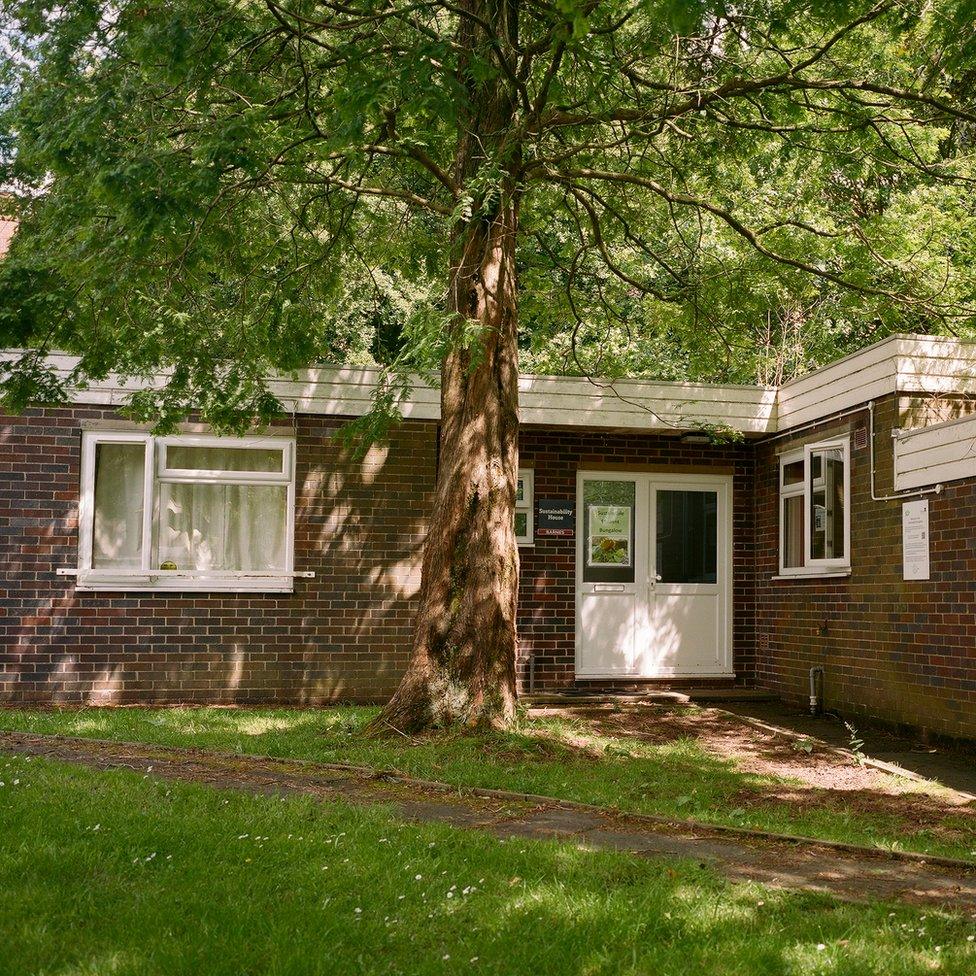
The Sustainability Bungalow was a former caretaker's house on Keele's Staffordshire campus
The idea of a sustainable living space on campus was the brainchild of a group of students on the Environment and Sustainability course at Keele University who wanted to put into practice the skills they were learning in lectures and field trips.
The university got behind the idea and found a disused caretaker's home alongside a small patch of land in which the students could grow vegetables.
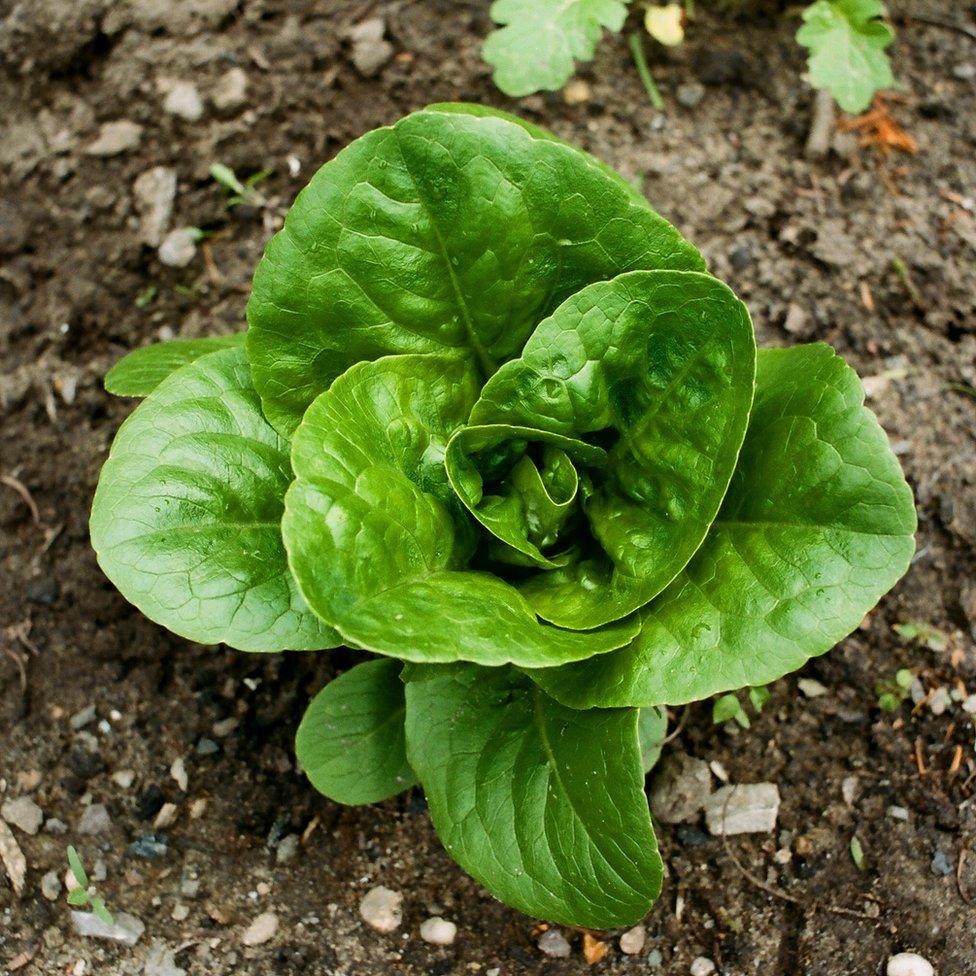
The project is overwhelmingly student-led, with the university running a host of modules "empowering students to drive change".
"The students took the idea that they can make a difference," says Prof Zoe Robinson.
"I am an optimist," she adds. "It is great to see that the drive and the interest that the students have for this project.
"It is important that in universities we give students the space to develop these sorts of projects and the skills to create change."
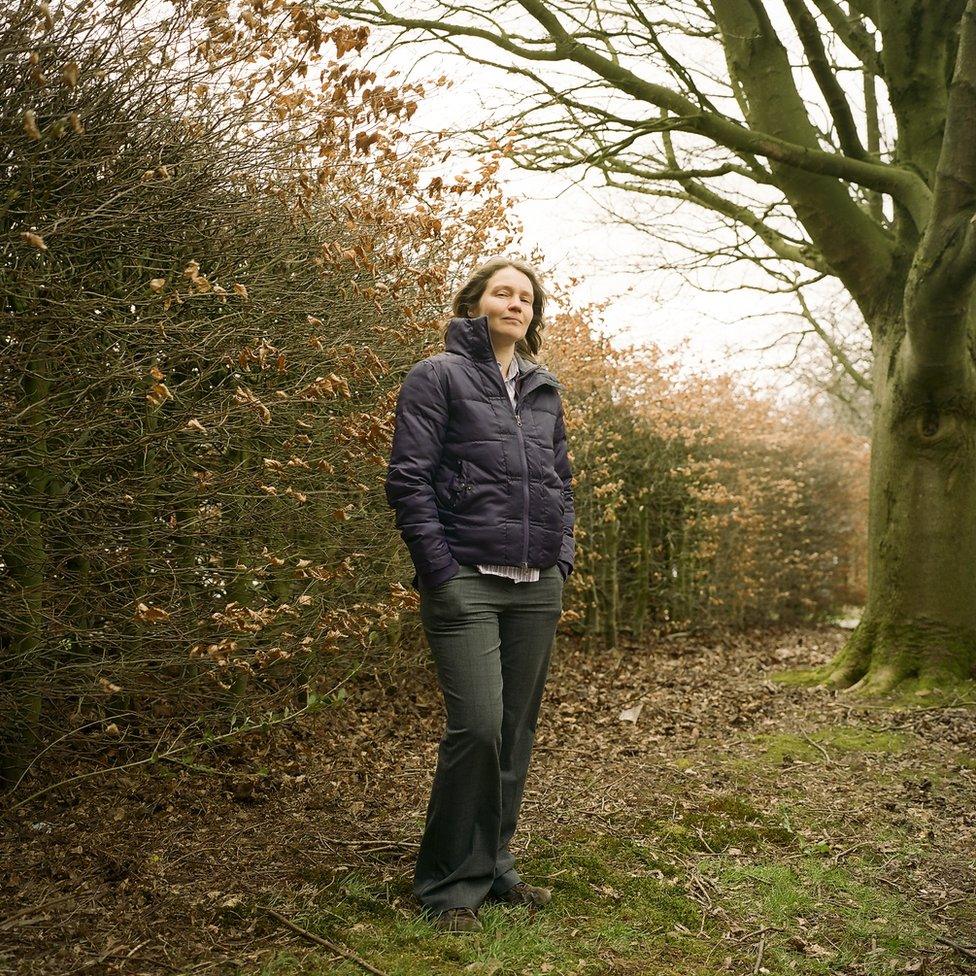
Professor Zoe Robinson
Each year four students are accepted into the bungalow, at least one of whom must be studying the environment. Others are drawn from across the curriculum, ensuring a wide range of experience and interests.
"One thing we don't have control over is what the student priorities are going to be," says Sarah Briggs, the Sustainability Project Officer at Keele.
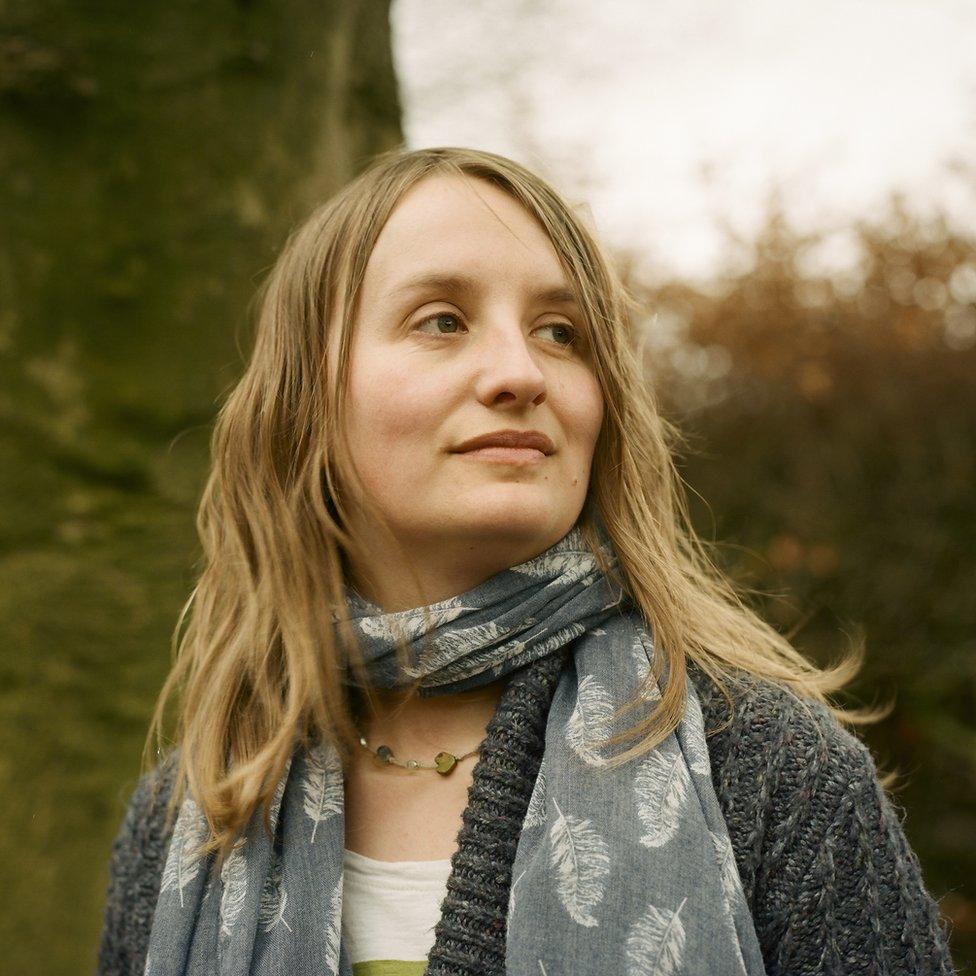
Former Environment and Sustainability student Sarah Briggs now works at the university
Sarah says students have tended to focus on an issue they feel the university is not addressing, looking at ways to tackle that particular problem.
Most recently, the residents have concentrated on food wastage on campus.
Working in conjunction with VegSoc, a group looking at plant-based eating, they try to compost as much as they can outside the bungalow - and encourage others to do the same.
They have also worked to ensure kitchen utensils left behind by departing students are not just thrown away, but offered to those who may need them.
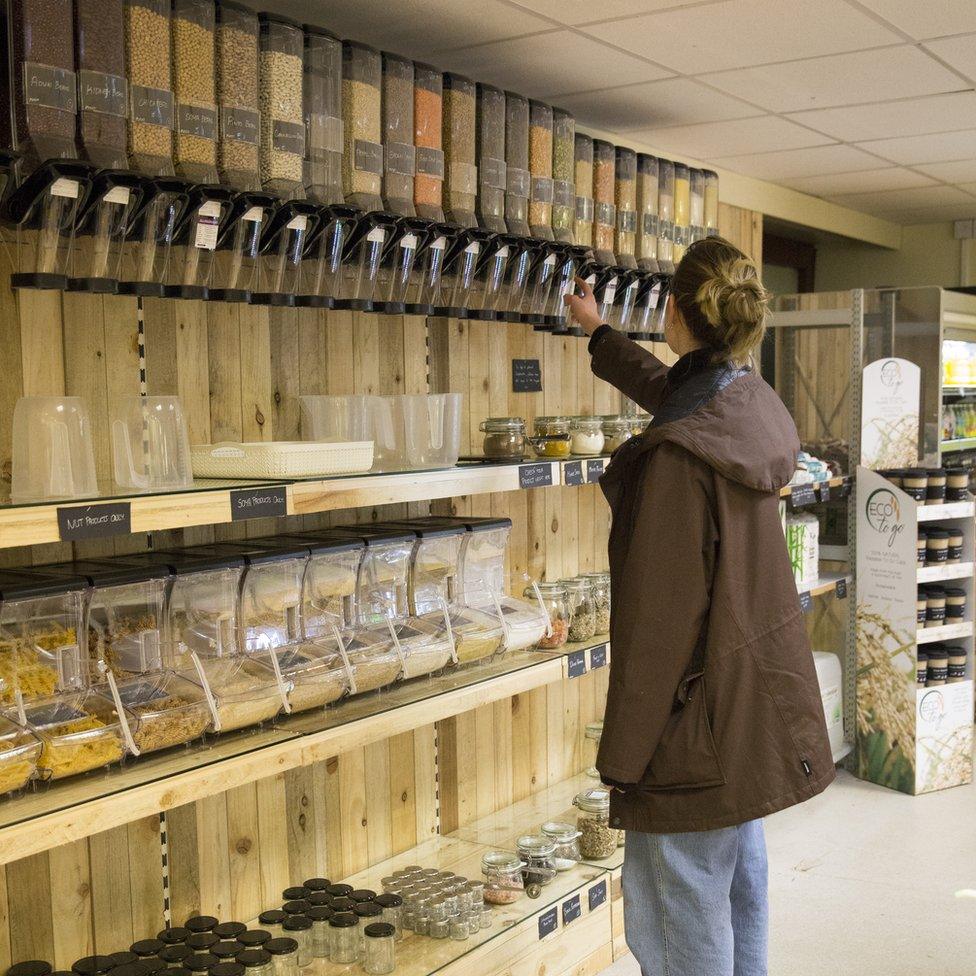
At the dry goods store at Keele Student Union, students can buy food by weight and take it away in their own containers, or sustainable packaging such as jam jars
Like many students, Hannah Murray spent her first year in a shared house and found that, although they attempted to recycle food waste, it was a bit "hit and miss".
Once in the Sustainability Bungalow, Hannah found application became much more rigid - everything they could recycle they did.
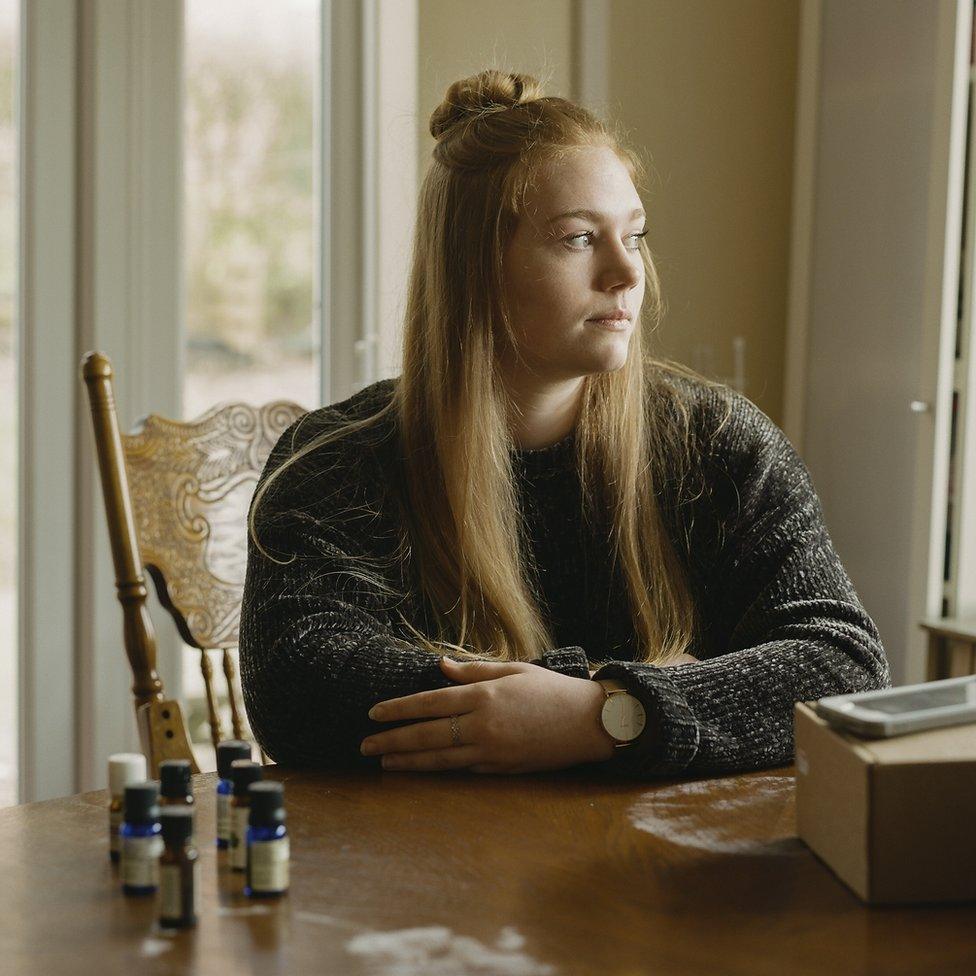
Hannah Murray is studying chemistry
It's not just about those students living in the bungalow, but about spreading the word on campus and beyond.
Basic food recycling and turning off the lights are just some of the really easy things you can do, says Hannah.
"I have learnt to cook more and pick stuff without plastic on it," she says. "That was hard. I thought I'd never be able to do it, but slowly I have and now I buy less plastic."
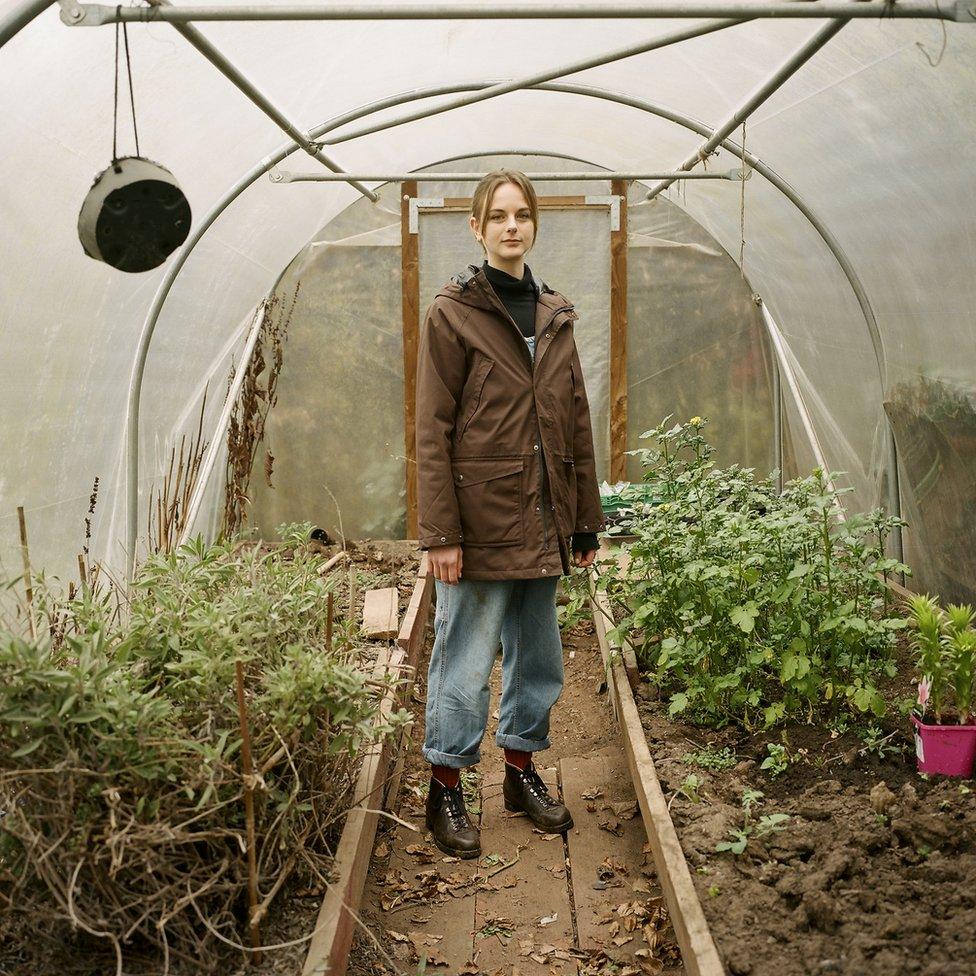
Lily Woodhams in the polytunnel
Lily Woodhams, 23, is studying Environment and Sustainability. She can remember a lesson at primary school about climate change and how it affected her - from then on she was always telling her mum to turn off the lights.
As part of her degree course, she visited a centre for alternative technology in Wales investigating off-grid living.
"I was really inspired and thought the bungalow might be an opportunity to take stuff learnt there and apply it," says Lily.
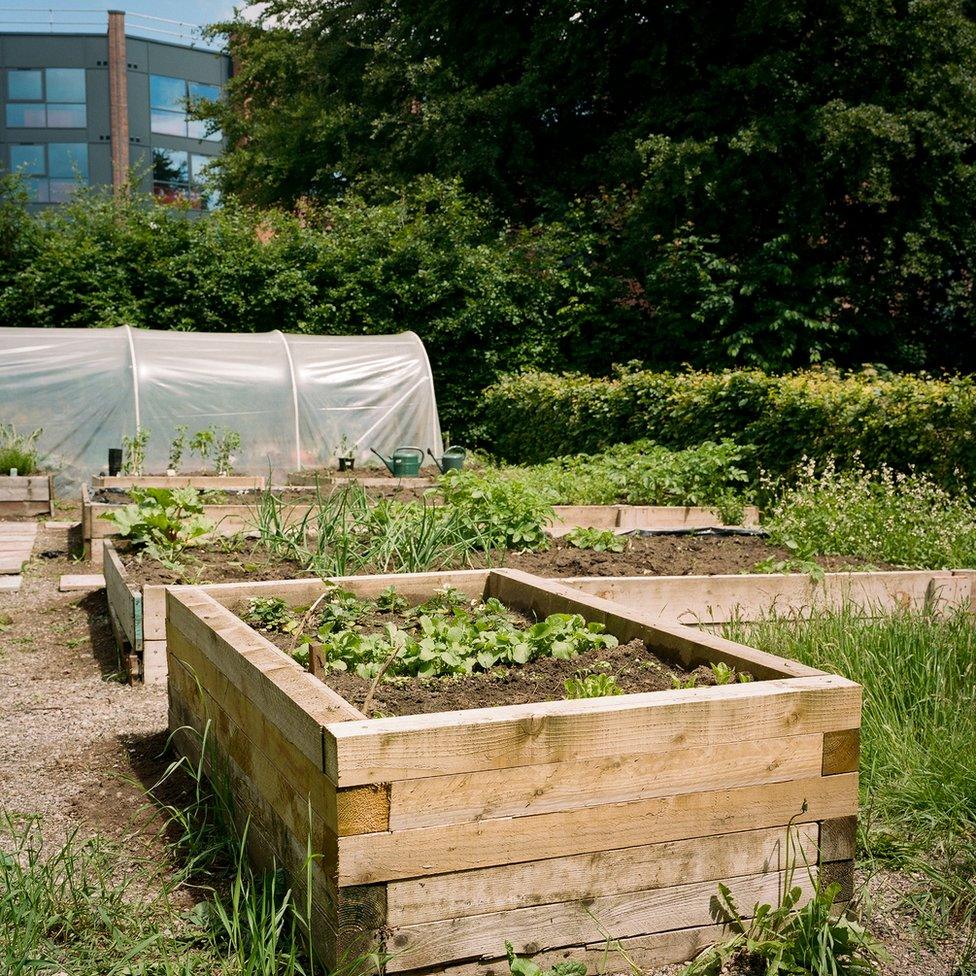
A number of raised beds allow students to grow their own produce
In the bungalow, the students aim to live as sustainably as they can, but there are no set targets.
Lily says there are times when the whole challenge gets her down, especially when she reads news articles about plastics in the ocean.
"I sometimes think, what is the point in me even doing anything?" she says.
"But then I took part in the Plastic Free Fortnight, external, a challenge set by the Environmental Justice Foundation.
"I was very public about this on Facebook and a girl I met last year, while travelling, messaged me and said I had inspired her to take part. That gave me hope.
"I know this is so small - and focusing on the consumer is not the best way to do it - but if everyone is more aware and has good practices in their lives then it will become the normal thing to do."
"A small change is a big change, in a way."
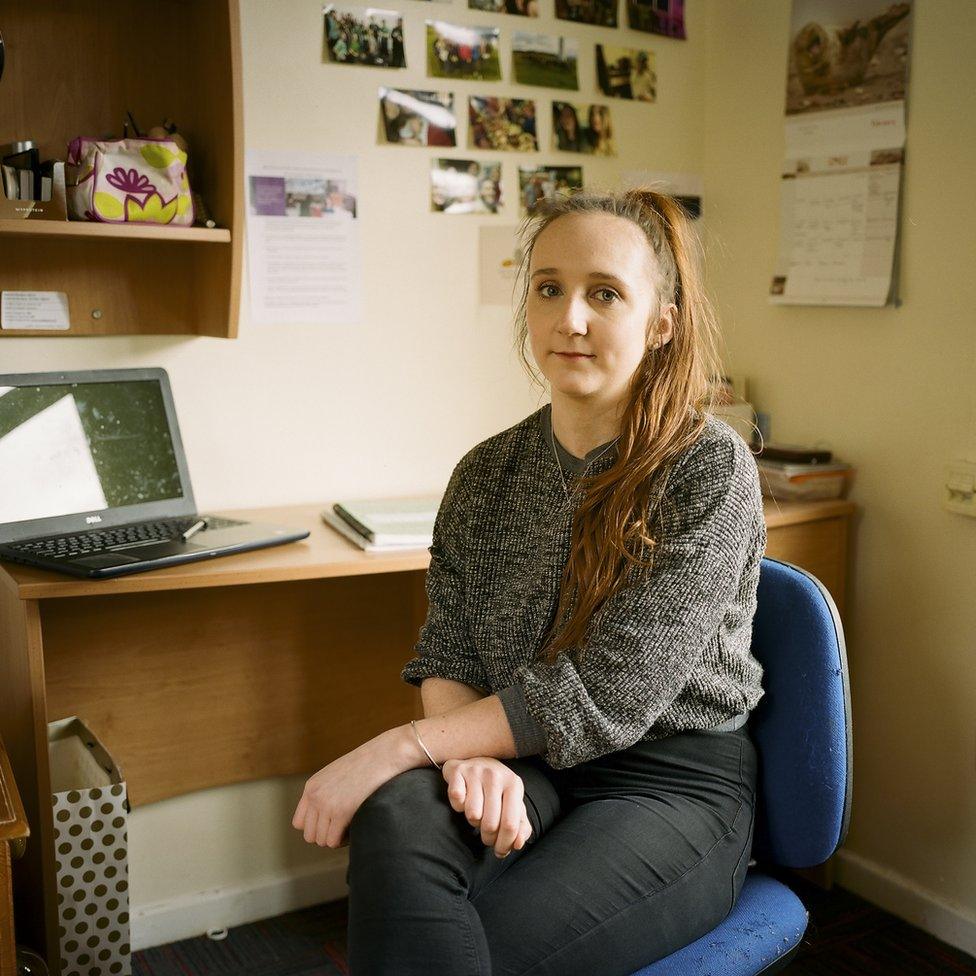
Lois Reeves in the Sustainability Bungalow
Lois Reeves has also found that living with others who are committed to a sustainable lifestyle has motivated her.
"I helped in the Welcome Week - encouraging people with the Green Society - but some people don't want to know," says Lois. "As much as you want to spread the word and help people understand, they just might not want to - that is a challenge."
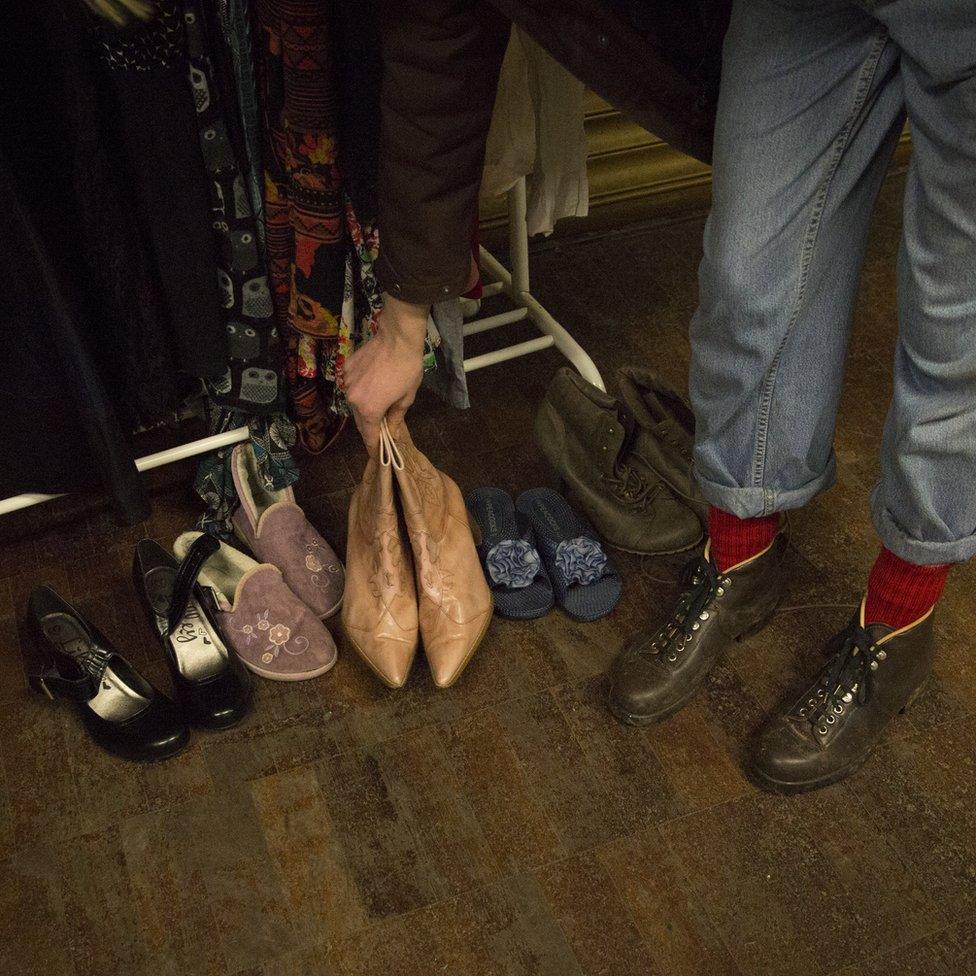
Clothes swap at the Ethical Makers and Producers Fayre, part of Keele Green Festival
Like many of us, Lois wonders how much one person can do to fight climate change.
"I do my bit, I recycle, but how good is that?
"I don't do Environment and Sustainability as a degree, I do Environmental Science - which I picked more for management and soil science, not for climate change.
"While this is a big issue and I do little things to help, I don't think I am going to be the person to change the world."
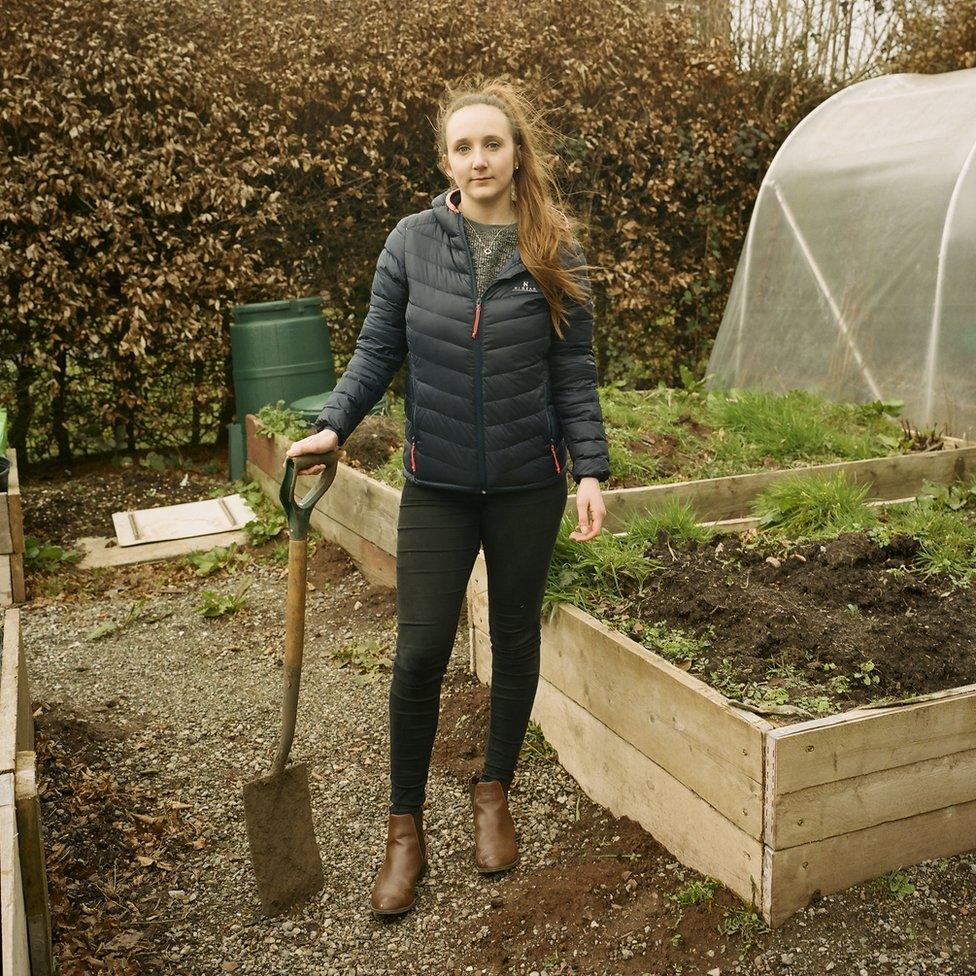
Lois Reeves in the garden
But living with the others has meant Lois is more engaged - and it has affected at least one person: her mum. Lois says she is now "more passionate about it than me".
"You don't have to have a house that has got all the latest sustainable technology to live sustainably," says Sarah. "One of the biggest assets of the bungalow is that it shows what can be achieved by people through their behaviour."
This could mean running an awareness campaign, altering your diet, growing vegetables and looking at how you shop.
"It is setting an example," says Sarah.
"What can seem overwhelming and challenging can sometimes have unexpected benefits," she adds. "Meeting like-minded people and really creating a positive feeling of being empowered, that every little thing you do matters."
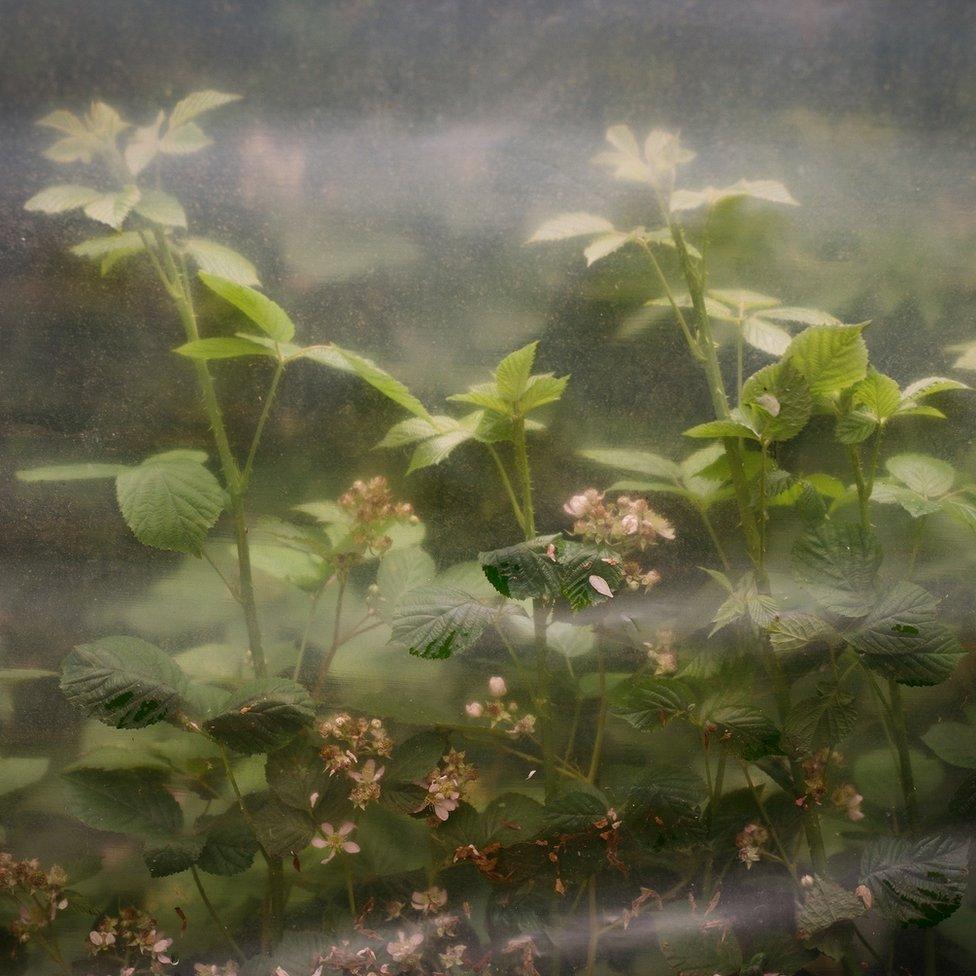
Photography and interviews by Alice Zoo, external, with additional research by Bethany Steed.